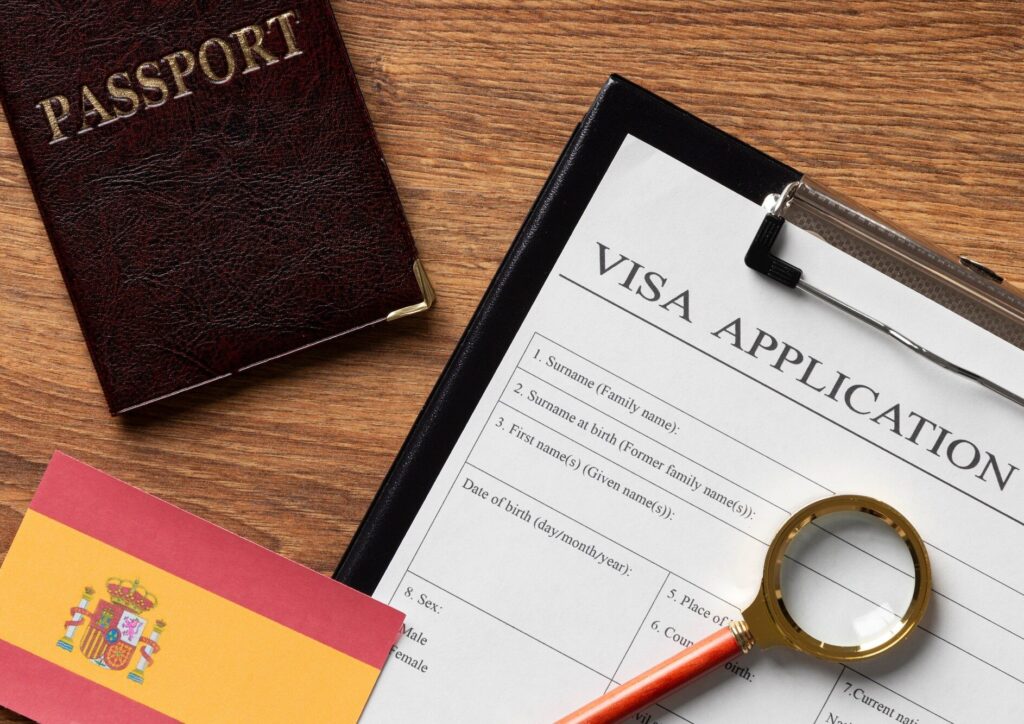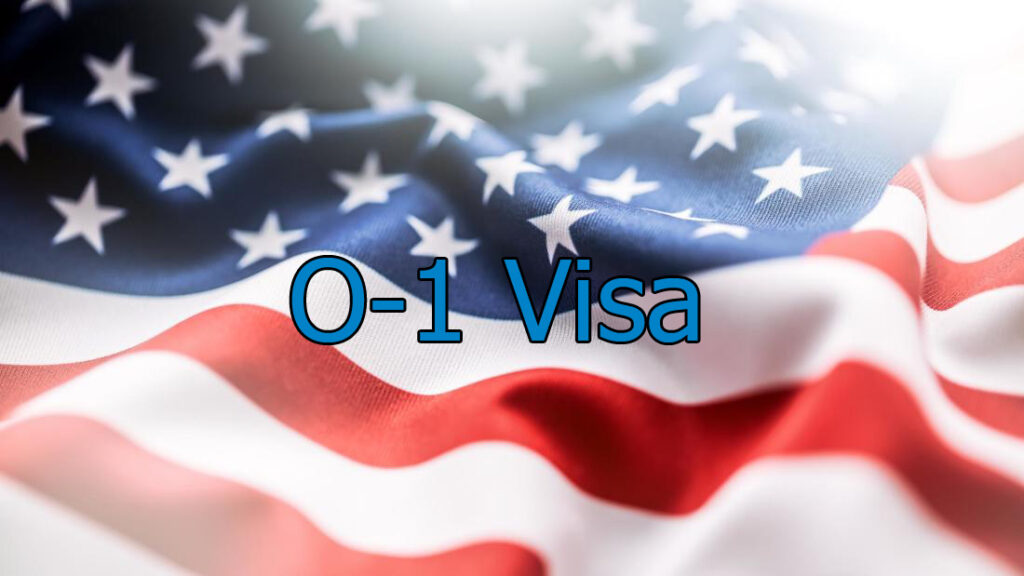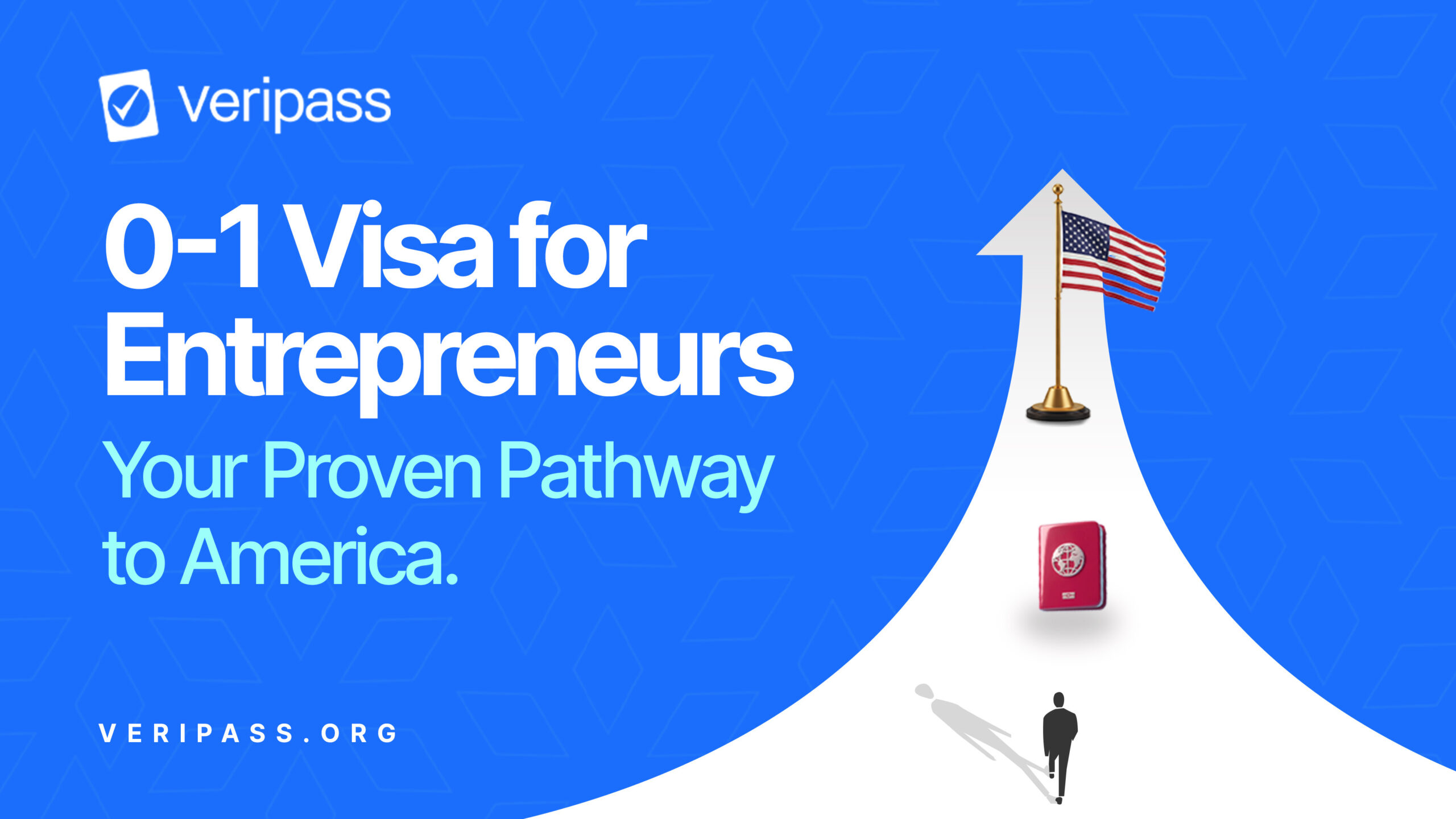Your O-1 visa application is about to get rejected.
That’s what happens when you apply for the O1 visa for entrepreneurs before you’re ready. The consultant takes your money, files your paperwork, and six months later, you get rejected. No refund. No second chance. Just a failed application on your record.

Here’s what nobody tells you: 6 out of 10 O1 visa for entrepreneurs applications get rejected. Not because applicants weren’t talented, but because they didn’t understand what “extraordinary ability” actually means to the U.S. government.
Most consultants won’t tell you this. They’ll call you a great candidate, list some criteria, and collect their fee. When your evidence looks weak three months in, it’s too late to back out.
This article stops that from happening.
I’m going to show you exactly who qualifies, what evidence actually works in 2025, and whether you should even apply right now. If you’re not ready, I’ll tell you. If you are, I’ll show you how to build a case that gets approved.
No sales pitch. No false hope. Just the truth about your chances and what to do next.
Read Also: can o1 visa work for multiple employers
What Is The O1 Visa For Entrepreneurs?

The O1 visa for entrepreneurs is a non-immigrant visa for people with extraordinary ability in business. It lets you work in the United States if you can prove you’re at the top of your field.
Why it’s attractive:
- Valid for up to 3 years, extends indefinitely
- Your family can come with you
- Pathway to a green card
- No lottery system (unlike H-1B)
- Open to all nationalities
The catch: You must prove you’re extraordinary. Not good. Not very good. Extraordinary means you’re in the top small percentage of your field.
Are You Actually Ready? The Honest Assessment
Before you spend thousands on lawyers, take this assessment. Be honest.
Score yourself:
- Raised investment from recognized VCs? (3 points)
- Featured in TechCrunch, Forbes, WSJ, or similar major publications? (2 points)
- Alumni of Y Combinator, Techstars, or top accelerators? (3 points)
- 10,000+ followers on professional platforms as a recognized expert? (1 point)
- Spoken at major industry conferences? (2 points)
- Hold patents or create widely-adopted technology? (2 points)
- Have recommendation letters from industry experts calling you extraordinary? (2 points)
Your Score:
- 8+ points: You’re likely ready. Keep reading.
- 5-7 points: Close, but build more credibility over 6-12 months.
- Under 5 points: Not ready yet. Consider other visa routes or build your profile first.
This assessment saves you time and money. If you’re not ready, it’s better to know now.
What Extraordinary Ability Actually Means
Immigration officers don’t care about potential. They care about what you’ve achieved and can prove with documents.
You must meet at least 3 out of 8 criteria. Here’s what each actually means:
- Awards or Recognition
What works: Pitch competition wins (500+ applicants), competitive government grants, recognized industry awards
What doesn’t: Nominations, internal awards, local chamber recognition
- Membership in Prestigious Organizations
What works: Y Combinator, Techstars, invitation-only CEO groups with less than 10% acceptance rates
What doesn’t: Pay-to-join organizations, alumni groups, LinkedIn groups
- Media Coverage
What works: Features in TechCrunch, Forbes, WSJ, Bloomberg, major regional papers, industry publications with 50,000 plus subscribers, and podcasts with 10,000 plus listeners
What doesn’t: Press releases you paid for, small blogs, social media posts alone
The truth: Most entrepreneurs lack this. It’s often the missing piece between rejection and approval.
- Original Contributions
What works: Licensed patents, technology used by thousands, copied business models, and research that influenced the industry
What doesn’t: Unused patents, products with few users, generic innovations
- Published Articles
What works: Harvard Business Review, MIT Technology Review, major industry publications, cited white papers, published book chapters
What doesn’t: Your company blog, self-published ebooks, Medium posts (unless republished by major outlets)
- High Salary
What works: Top 10% for your role and location (e.g., $180,000+ for tech founders in major markets), verifiable stock options, premium consulting fees
What doesn’t: Future compensation promises, unvalued stock, below-market salaries
- Judging Others’ Work
What works: Judging pitch competitions, grant review panels, accelerator mentor evaluations, reviewing applications for industry organizations
What doesn’t: Interviewing candidates at your company, informal mentorship, occasional opinion-giving
- Critical Role in Distinguished Organizations
What works: Executive at a known company, founding team of a successful startup, leadership at a recognized institution
What doesn’t: Mid-level employee anywhere, founder of an unknown company with no traction
The Uncomfortable Questions Others Won’t Answer
“What If I Haven’t Raised VC Funding?”
Most successful O1 visa for entrepreneurs applications include significant funding. Without it, you need:
- $1 million plus annual revenue
- Tens of thousands of customers/users
- Multiple major media features
- Strong recommendation letters from industry leaders
The bar is higher without VC backing.
“Can I Sponsor Myself?“
Yes, but not directly. You need:
- A U.S. employer to sponsor you
- A U.S. agent to sponsor you
- Your own U.S. company (LLC/corporation) to employ you
The third option is common for entrepreneurs, but you must set up the entity correctly. Many founders mess this up.
“What If My Startup Failed?”
Failed startups don’t kill applications. What matters is what you achieved:
- Did you raise funding?
- Did you gain users?
- Did you get media coverage?
- Did you create impactful technology?
Frame your story around achievements, not outcomes.
“What If I’m Between Startups?”
This is fine. The O1 is for your ability, not a specific job. You can get approved based on past achievements and future U.S. plans. You don’t need current employment.
How To Build Evidence (What Others Skip)
If you’re not ready today, you can become ready in 6-12 months.
Building Media Coverage
Months 1-2:
- Document business metrics
- Identify what makes your story interesting
- Create press kit (photos, one-pager, facts)
Months 3-4:
- Pitch industry publications
- Write guest articles
- Get on niche podcasts
- Build your voice on Twitter/LinkedIn
Months 5-6:
- Pitch regional publications
- Target national outlets with news hooks
- Build journalist relationships
Most founders don’t know how to pitch media. Most immigration consultants don’t help with this. But this evidence often tips applications from rejection to approval.
Building Authority
Weak on “judging others”? Fix it:
- Mentor at accelerators
- Judge pitch competitions
- Join conference expert panels
- Review grant applications
Building Publications
Haven’t written anything? Start:
- Pitch guest articles to Fast Company, Inc., and trade journals
- Write detailed LinkedIn posts showing expertise
- Submit to large and Medium publications
- Consider writing a book
Key: Must be published by others, not just your blog.

The O1 Visa Timeline
12 Months Before:
- Assess evidence against 8 criteria
- Identify gaps
- Build missing evidence
6-9 Months Before:
- Document everything
- Gather proof (screenshots, links, certificates)
- Request recommendation letters
3-4 Months Before:
- Get 5-8 letters written
- Organize all evidence
- Set up a U.S. entity if self-sponsoring
2-3 Months Before:
- Work with immigration professionals
- Draft petition letter
- Submit application
Processing:
- Standard: 3-6 months
- Premium: 15 days (costs extra)
Don’t wait until you need to be in the U.S. next month. The O1 visa for entrepreneurs requires preparation.
Common Rejection Mistakes
1. Weak Recommendation Letters: Generic letters don’t work, things like: “John is excellent and would be an asset.”
What works: Specific comparisons. “I’ve invested in 200 startups. Jane’s approach is the most innovative I’ve seen. Her technology has been adopted by 50+ companies, rare at this stage.”
2. Claiming Criteria You Don’t Meet: One small blog mention isn’t major media coverage. Be honest. Strengthen what you have.
3. Poor Documentation: Achievements without proof mean no achievements. Keep everything: screenshots, links, awards, term sheets.
4. No Narrative: Your application must tell a story; you’re extraordinary in this business area, here’s proof, here’s what you’ll contribute in the U.S.
5. Applying Too Early: Rejections make future applications harder. Wait until your evidence is strong.
The Green Card Path
The O1 visa for entrepreneurs isn’t permanent, but it leads to permanent residency.
Many O1 holders transition to EB-1 green cards (for extraordinary ability). Similar evidence. If you qualified for O1, you’re often positioned for EB-1.
EB-1 is faster than other employment green cards. No labor certification. No years-long employer sponsorship wait.
This makes the O1 valuable; despite being temporary, it’s a stepping stone.
When You Need Professional Help
Can you Do It Yourself? Technically, yes. Should you? Probably not.
O1 applications aren’t just forms. They’re legal arguments for why you’re extraordinary. They present evidence in ways that make sense to officers reviewing hundreds of applications.
What professional help provides:
Evidence Strategy: Identifying your strongest case. Maybe your award isn’t your best evidence; your media coverage and investor letters tell a stronger story.
Evidence Building: Most consultants stop at paperwork. But if you’re missing evidence (media coverage, publications), you need help getting it. This includes media placement strategy, publication support, and building your profile to strengthen your case.
Letter Guidance: Most people don’t know how to request letters or what they should say. Professional help means letters that address legal criteria, not generic praise.
Legal Documentation: The petition letter is critical. It must make a legal argument using your evidence. Don’t write this yourself.
Full Process Management: From consultation to document review, business setup, filing, interview prep, and follow-up. Missing one step causes delays or denials.
At Veripass, we handle all this. We work with experienced immigration attorneys who know what USCIS looks for. But we go further, we help you build missing evidence. That includes media coverage opportunities, publication support, and PR strategy to build your extraordinary ability case.
We don’t just file paperwork. We help you become the candidate who gets approved.
Is The O1 Right For You?
The O1 is right if:
- You’ve achieved measurable success (funding, revenue, users, recognition)
- You can prove achievements with documentation
- You’ll invest 6-12 months building missing evidence
- You plan to do entrepreneurial work in the U.S.
- You want a green card path
The O1 is wrong if:
- You’re very early stage with no traction
- You can’t meet 3 criteria even with preparation
- You need to move to the U.S. immediately
- You’re not at the top of your field (that’s okay, most aren’t)
Consider alternatives if:
- Earlier stage: International Entrepreneur Rule (IER) or L-1 visa
- Significant capital: EB-5 investor visa
- U.S. company ready to hire you: H-1B
Take The Next Step
If you’ve read this far, you’re serious about the United States. But reading isn’t enough.
If you scored 8+: You’re likely ready. Book a free consultation with Veripass. We’ll review your evidence, tell you honestly if you’ll get approved, and explain the process.
If you scored 5-7: You’re close. Book a consultation. We’ll create a 6-month roadmap to build missing evidence, including media placement and publication support. Then we’ll help you file when ready.
If you scored under 5, you need more time. Build your business and reputation first. Check back in 6-12 months, or consider other visa options for your stage.
The O1 visa for entrepreneurs is achievable, but requires real accomplishment. If you have it (or will build it), we can help you prove it to U.S. immigration authorities.
Book Your Free Consultation with Veripass today. Send an email to clientsupport@veripass.org
Final Thought
The United States needs entrepreneurs. People who build things, create jobs, and push industries forward. The O1 visa exists to bring highly skilled individuals to America.
But the system is rigorous. It should be Extraordinary has to mean something.
If you’re at the top of your field, you may be eligible for this visa. If you’re not there yet, you can get there with focused effort. Either way, be honest with yourself about where you stand.
Honesty is the focus of this article. Not selling services you don’t need. Not promising easy approvals. Just giving you the truth so you can make informed decisions about your future.
The O1 visa for entrepreneurs is a powerful tool. Use it wisely.
Can I apply for O-1 on my own?
Technically, yes, but it’s not recommended. The O-1 application requires building a legal argument for why you’re extraordinary, not just filling out forms. You need to present evidence in a way that makes sense to immigration officers who review hundreds of applications daily. Most DIY applications get rejected because people don’t know how to frame their achievements properly, request effective recommendation letters, or structure the petition letter correctly. The cost of rejection (wasted fees, time, and a harder path for future applications) usually outweighs the cost of professional help.
Can a startup sponsor an O-1 visa?
Yes. Your startup can sponsor your O-1 visa, but it must be a registered U.S. business entity (LLC or Corporation). You cannot directly sponsor yourself; your company sponsors you as an employee. This means you need to set up the business properly in the U.S., have a clear employment structure showing your role and compensation, and demonstrate that the company has legitimate business operations. Many entrepreneurs get this wrong by not structuring the entity correctly or failing to show proper employer-employee relationships. The company must also show it has the ability to pay your salary.
Can you be self-employed on an O-1 visa?
Yes, but with conditions. The O-1 visa allows self-employment, but you need a U.S. entity to sponsor you. Most self-employed entrepreneurs set up their own U.S. company (LLC or Corporation), which then employs them and sponsors the visa. You can also work with a U.S. agent who sponsors you and allows you to work on multiple projects or contracts. The key is that someone (your company or an agent) must file the petition on your behalf. You cannot file as an individual without any U.S. connection.
How to get an O-1 visa in business?
To get an O-1 visa in business, you must prove extraordinary ability by meeting at least 3 of these 8 criteria: (1) National or international awards, (2) Membership in prestigious organizations (like top accelerators), (3) Major media coverage, (4) Original contributions of major significance, (5) Published articles in major outlets, (6) High salary compared to peers, (7) Judging others’ work in your field, (8) Critical role in distinguished organizations. Start by assessing which criteria you meet. Gather strong documentation (media articles, investment term sheets, awards, patents). Get 5-8 recommendation letters from recognized experts in your industry. Work with immigration professionals to prepare a compelling petition letter that presents your evidence legally. Submit Form I-129 with all supporting documents. The process takes 3-6 months (or 15 days with premium processing). If you don’t meet 3 criteria yet, spend 6-12 months building evidence through media coverage, publications, speaking engagements, and judging opportunities before applying.
